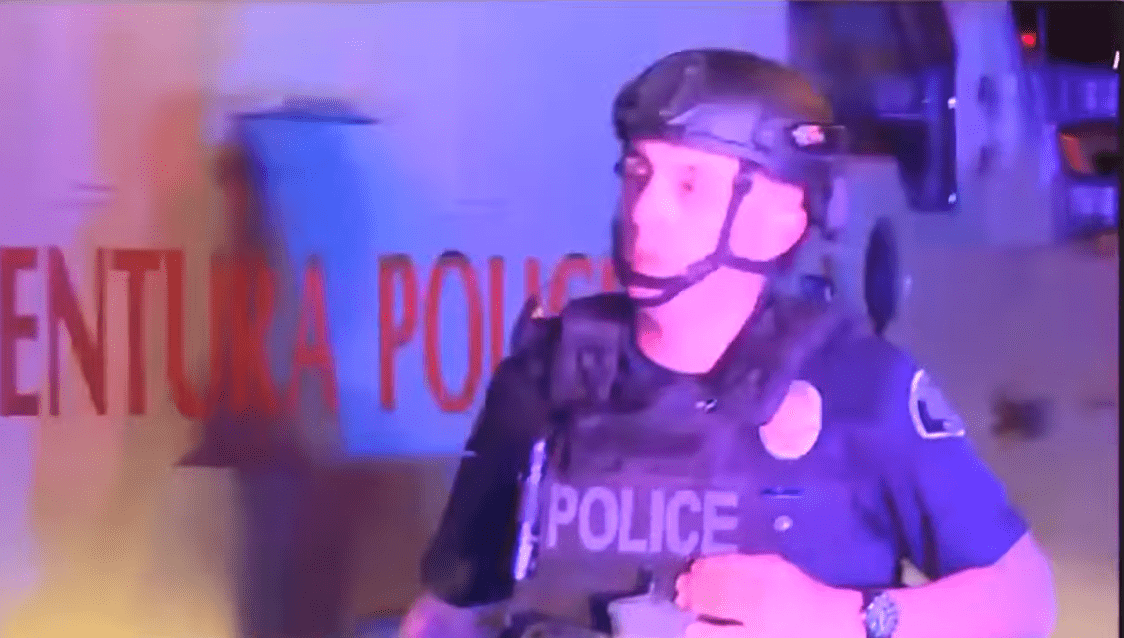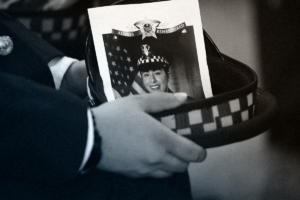Thousand Oaks Mass Shooter May Have Suffered From PTSD, Sheriff Says
Psychologists, however, are still debating the links between PTSD and violent behavior. Screenshot / YouTube
Screenshot / YouTube
America woke up to news of yet another mass shooting Thursday morning. Twelve people are dead at the hands of alleged shooter Ian David Long, a 28-year-old who threw smoke bombs and fired bullets into a Thousand Oaks, Calif., bar.
Long, who also died of a gunshot wound, which may have been self-inflicted, was a former Marine who may have been suffering from post-traumatic stress disorder, Ventura County’s sheriff told the Los Angeles Times.
“Obviously, he had something going on in his head that would cause him to do something like this,” Sheriff Geoff Dean told ABC. “So he obviously had some sort of issues.”
Dean told the Times that his department had multiple interactions with Long prior to Thursday’s shooting, and had sent out officers in response to complaints of Long disturbing the peace. Police brought in mental health professionals to evaluate him, but they determined he did not need to be taken into custody.
One neighbor, Richard Berge, told the Times that Long had PTSD and had kicked the walls of his mother’s home, where he lived. “She’s a very sweet woman,” Berge said of Long’s mother. “But she had a lot of problems with the son. … I just know he tore the house up.”
Berge, who also spoke to ABC, told reporters that Long “wouldn’t get help.”
The Marine Corps released Long’s record, which shows that he served from 2008 to 2013 and was deployed to Afghanistan from Nov. 16, 2010, to June 14, 2011. He was a corporal and a machine gunner.
Although the sheriff’s office, early news report and Long’s neighbors contend that he suffered from PTSD, there is no indication in currently available reports that he had been diagnosed with the condition by a medical professional. In fact, Dean said at a 7 a.m. news conference, “We have no idea what the motive was at this point.”
The link between PTSD and violent acts is still unclear and requires more research. “The closer we get to trying to understand how PTSD relates to extreme violence, the more we get anecdotal,” Paula Schnurr, deputy director of the Department of Veterans Affairs’ National Center for PTSD, in Vermont, told The Washington Post in 2012.
Matthew Friedman, the center’s director, was even more cautious, telling the Post, “To pick PTSD and highlight it in the way it’s been played out in the media is a gross distortion and contrary to what we know.”
Dig, Root, GrowThis year, we’re all on shaky ground, and the need for independent journalism has never been greater. A new administration is openly attacking free press — and the stakes couldn’t be higher.
Your support is more than a donation. It helps us dig deeper into hidden truths, root out corruption and misinformation, and grow an informed, resilient community.
Independent journalism like Truthdig doesn't just report the news — it helps cultivate a better future.
Your tax-deductible gift powers fearless reporting and uncompromising analysis. Together, we can protect democracy and expose the stories that must be told.
This spring, stand with our journalists.
Dig. Root. Grow. Cultivate a better future.
Donate today.








You need to be a supporter to comment.
There are currently no responses to this article.
Be the first to respond.